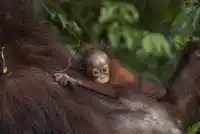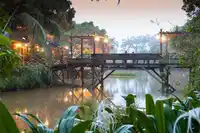Interview with Wong Siew Te
Tell us more about the work that you do and how it supports long-term conservation efforts?
I first came to Borneo in 1998 to study the ecology of wild sun bears and I have been active in the research and conservation of sun bears ever since. In 2008, I founded the Bornean Sun Bear Conservation Centre 2008 in Sabah, Malaysia Borneo, with the objective to support sun bear conservation through a holistic approach that incorporates improving the welfare of the rescued captive sun bears, education, research, and rehabilitation. The center aims to support long-term conservation efforts on sun bears.
Do you have a single most influential or defining moment when you knew that you wanted to study and work with animals and what have been your biggest challenges?
Yes, I do. The most defining moment when I knew that I wanted to study and work with animals was when I was a kid, maybe at the age of 5 or 6. At that time, I was raising up three house sparrow chicks that fallen from their nest. One day I accidentally stepped on one of chick as they were hopping on the floor and killed her. I was so sad and wanted to save the sparrow chick so badly. Since then, I rescued and raised many wild birds, pets, and developed an ambition to be an animal expert or a veterinarian. The biggest challenges in reaching this point of my career is the shortage of financial and human resources to do all the work that we need to conserve sun bears. The task to save sun bears from extinction is a big job and typically requires a lot of funding to do all the work on the ground.
How can we change local attitudes towards nature?
Understanding; people need to understand what nature is, how nature functions, and why is nature so importance to their livelihood through education. People also need to know that we only have one nature – the Mother Earth - and there is no alternative at this moment. If we destroy nature, none of us can survive.
Understanding is the most effective approach to human-wildlife co-existence and conflict. Local people need to understand why conflicts occur, what went wrong, and how to solve the problem. Without understanding, it is very difficult to solve the problem and co-exist together.







